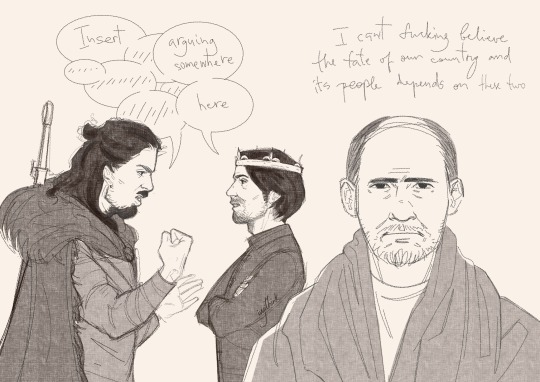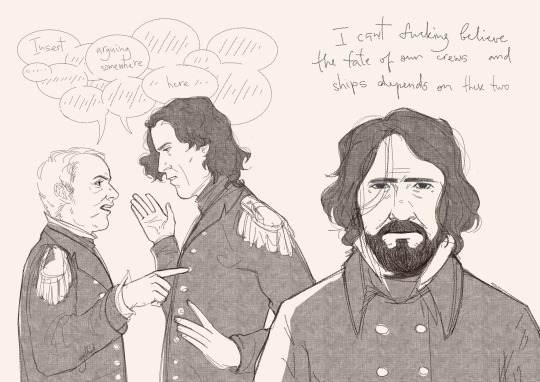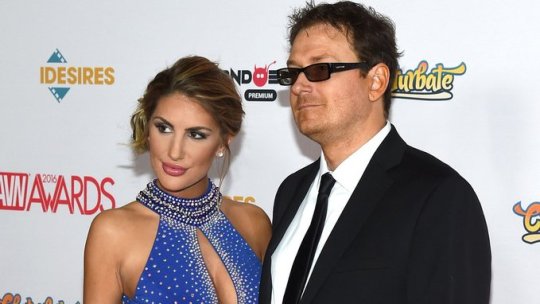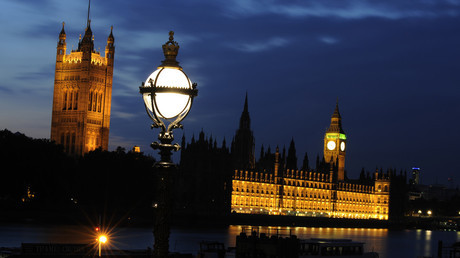#great characters who deserve a break from all the coddling they had to do poor souls
Text


the fact that ian hart played both father beocca and thomas blanky brings me unexplainable but undeniable joy, every time i think about it
it’s like the meme: “If I had a nickel for every time I was a long-suffering friend to two actually very smart idiots who made a great team but were too stubborn, arrogant and proud to actually become friends until one of them was dying and they were tearfully acknowledging the respect and affection they had for one another, I'd have two nickels. Which isn't a lot, but it's weird that it happened twice.”
#my art#my doodles#he probably saw the script for the terror and went oh#oh that feels familiar doesn’t it#anyway i love him so much in both roles#great characters who deserve a break from all the coddling they had to do poor souls#the last kingdom#tlk#tlk alfred#tlk uhtred#tlk beocca#the terror#the terror amc#francis crozier#james fitzjames#thomas blanky
96 notes
·
View notes
Note
The thing is, Ian was right. Mickey doesn't know any better, the writers on the show made sure of that, because for them the only important thing about Mickey is his devotion to Ian. But we're a bit more realistic about it and can analyze Ian's actions without being limited by someone's poor imagination.
There’s a lot to address here, so please forgive me for the lengthy response, anon! 🙂 I’ll preface all of it by saying this: my general opinion is that if Mickey has what makes him happy, we should support that regardless of how we feel about the other party (with obvious exceptions like physical abuse, etc.). If Byron was what made him happy, I would support him even if I couldn’t stand the guy. The same goes for any other character in any other franchise, at least for me. Now, onto your points:
I’m not sure which scene you mean when you mention Ian saying he doesn’t know any better, but I’m definitely with you on our ability to analyze Ian’s actions. The problem here is that analyzing will always be colored by perspective and implicit bias. If your fave is Mickey, anything that hurts him will look a whole lot worse than what he does that hurts Ian and perhaps lead to conducting a less than thorough analysis or rejecting sensible arguments about Ian’s character. Based on the number of posts I see about how Mickey is the only good thing on the show, I’d argue that that is a very real danger in many of the takes on Ian as well as everyone else. I’ve seen some pretty heavy demonizing of characters who hurt Mickey’s feelings or aren’t actively sweet to him, which is a bit unrealistic since that’s life and Mickey certainly never seems to mind or let it keep him down for long.
As far as him not knowing better, on the whole, I don’t think that gives Mickey much credit at all. Actually, it doesn’t really give him any credit, which is sort of surprising given how vehemently people defend his IQ, academically and emotionally, against what amounted to a joke. Mickey knows that Ian messes up and does things that are questionable at best and hurtful at worst. He’s not an innocent, pure character who endures heartache after heartache to throw himself at the brick wall of earning Ian’s attention. He gives as good as he gets and has hurt Ian too. They’re human and written very realistically in that regard. Their love for one another allows them to forgive transgressions and move on, not hold grudges or “not know any better” with regards to what they deserve. Love isn’t about what we deserve, and I think it’s important to remember that a relationship won’t last if it’s based on an arbitrary numerical score of who has done more harm than the other. Things happen. Poor decisions are made. They can allow that to break them or work through it. Mickey has actively chosen to work through it because at the end of the day, he loves Ian more than he is interested in finding something else. In earlier seasons, Ian similarly chose to work through it with someone who might never be in a position to come out and begin the full relationship that he so desperately wanted. That’s beautiful to me, not contemptible.
As far as the only important thing about Mickey being his devotion to Ian, we’ll also have to agree to disagree. 🙂 In the early seasons, while Ian was certainly the catalyst for it, Mickey’s story was about coming out more than his devotion to Ian. That’s why we have the scenes where he taunted Kash (focus: keeping his secret), purposely got sent back to juvie (focus: hiding from Terry if he found out), and got married (focus: self-preservation). We do absolutely see a rising devotion for Ian during this period, of course, and there’s no argument that his character was written expressly to be Ian’s love interest. The writers still made him a well-developed one with his own motives, fears, and desires outside of Ian in a way that later love interests didn’t get. (My own belief is that they didn’t intend for the later relationships to last like they did Mickey, but regardless of the validity there, Mickey was written as a character with more depth from the very beginning and existed before anything with Ian ever happened.)
The first half of s4 shows Mickey on his own merits. He’s handling his new position as a patriarch of the family, running the business while Terry is fairly hands-off and watches. He decides to help the Russian girls and ends up going into business with Kev. We learn a lot about Mickey’s character outside of Ian during that time. In fact, there are only a couple of scenes that really focus on him missing Ian until finding him becomes Mickey’s task: asking Kev if anyone has heard from him, the bathroom scene, and the later Alibi scene. Otherwise, the early s4 writers showed us a Mickey who was compassionate, ambitious, utilitarian, entrepreneurial, and collaborative—all without tying it back to Ian. Kev and V are renowned friends of the Gallaghers, but Mickey doesn’t grow closer to Kev in an attempt to learn more about what happened to Ian. He doesn’t help the girls because he thinks Ian would want him to. In fact, with the exception of those scenes I mentioned, we have no reason to believe that Ian is on Mickey’s mind at all while he’s doing these other things. He has a life outside of Ian just like the opposite is true, and s4 went to great lengths to show us that.
The second half of s4 is, once again, about keeping his secret until he decides to come out. (Read: decides to, is not forced to. More on that in a moment.) Yes, his devotion to Ian is once again the catalyst for some of his decisions, but there’s much more to it than that. Once again, we still see scenes with Mickey operating on his own for his own purposes. He doesn’t leave home entirely because he wants to be with Ian—he also wants to escape from his wife and pretend that things are the way they used to be. He doesn’t scam money from the rich guy or take more than his cut from the register at the Alibi to protect Ian—he does it for self-preservation so that Svetlana won’t get him killed. He doesn’t go to the baptism to keep up appearances and protect Ian—he does it to keep up appearances for himself and because...well, like it or not, that’s his son. The lattermost is something Ian specifically does not want him to do, and if he does, he wants to be there. Mickey goes against his wishes because it’s about protecting himself (and perhaps, by extension, their relationship), and rightfully so. Coming out at the Alibi does once again tie to Ian as a catalyst for change in Mickey’s life, but it didn’t have to happen. Mickey could have grabbed his coat, told everyone goodnight, and left with Ian. At no time did Ian tell him that he would leave if Mickey didn’t come out to everyone or admit they’re a couple, even if he did make reference to the fact that Mickey was hiding and not free. All Ian wanted was for Mickey not to treat him like a mistress or expect him to stick around if he did. Instead, it was a logical culmination of Mickey’s written development to come out. He’s stronger and more independent than he used to be. He’s capable of taking care of himself and surviving in the world without relying on Terry. He’s in a position where yes, he’s still justifiably terrified of coming out and what it’ll mean where Terry is concerned, but he’s able to do it. Ian is a catalyst for it, but being devoted to him isn’t Mickey’s only reason.
In s5, a lot of Mickey’s story does revolve around his devotion to Ian, but not any more than Ian’s revolves around devotion to him in the second half of s3. We still see Mickey doing business and running the family, but having Ian be his more central concern makes sense because Ian is sick and the writers have already told us that his health is a ticking time bomb waiting to explode. In denial or not, Mickey knows this. And so we see his story center around Ian because, to an extent, it has to. Ian is mentally and physically sick. He’s adjusting not only to meds, but to a label that makes him feel ashamed and afraid. Mickey is devoted to him, and so Mickey does everything he can to take care of him. But here’s the thing: that scares Ian too. He’s seen what happens to the people who try to take care of Monica. He knows how it felt to try only to be ignored or betrayed or abandoned. The breakup isn’t about anger at being coddled or, by my interpretation and Ian’s own words, him being selfish. It’s about him seeing that Mickey’s devotion is going to keep him from living his life and ultimately (in his opinion) hurt him beyond repair, and so he sets Mickey free. It hurts him, yes, but it does work.
Because even though we don’t see it happen on-screen, s6 through s9 can’t possibly be Mickey sitting in a prison cell pining over Ian. If that was going to happen, we’d have seen it in s4. By this point, we know who Mickey is outside of Ian and can assume that he’s operating in much the same way on the inside until he figures out what he wants to do. We know he and Svetlana had a business arrangement where they took out contracts for work he could do in prison. We know that he makes a business acquaintanceship with Damon, which means he was probably involved in dealing or smuggling while there. Neither of these things can possibly revolve around devotion to Ian because they could conceivably keep him from Ian longer. His sentence is fifteen years, and if he’s counting on being out in eight to be with Ian, he needs to be on his best behavior. He’s not. He’s unapologetically not when he sees Ian again and talks about what Damon is. Ian looks less than comfortable with it, but that’s not why they ditch him—it’s because he might get Mickey caught with his behavior. Even breaking out happened once he was able to solidify an opportunity working for a cartel, so while Ian may have been another catalyst (besides the obvious desire to get out of prison), the decision wasn’t about devotion to him. The only decision that was about that was the one he made at the border to let Ian go without making him feel worse about it. He’s devoted to Ian, so he knows that dragging him along on the run into the unknown won’t be good for him. He needs stability and a support system and medication, none of which Mickey can provide if they cross that border together. So, out of his devotion, he lets Ian go. They have a heartfelt goodbye and separate for what they think is the last time.
Does Mickey’s devotion lead him to turning himself in? Absolutely. But not before spending another long stint living his own life. The writers make sure we know that he had a life without Ian playing a role in it, once again conducting business and operating successfully on his own merits. They’re limited in what they can show because Noel wasn’t available, which made logistics important, but they didn’t leave him high and dry or insinuate that he was waiting around in Mexico for an excuse to return to Ian. He was once again a successful businessman in the illicit economy. When he returns in s10, his storyline does then appear to revolve around devotion to Ian more—but it doesn’t. Mickey has people he hangs out with in prison separate from Ian and with no ties to him. With the Byron situation, it wasn’t about proving devotion for Ian when he thought Ian questioned it—it was about hurting Ian because of what happened at the courthouse, even after he found out what Ian was really afraid of. If the writers were only interested in showing his devotion to Ian, he would have ditched Byron the second Ian told him that he was scared of his disorder and ruining them. He doesn’t. He sticks it out because Mickey is so much more than his relationship with Ian: he’s independent, vengeful, hot-headed, impulsive, and stubborn. These are traits that have been set up by the writers throughout the series both with and without ties to their relationship, and he very adamantly adheres to his revenge-plot-turned-catalyst-for-Ian-pulling-his-head-out-of-his-ass because he isn’t all about devotion to Ian.
I completely respect your opinion on the matter and appreciate the opportunity to discuss it at length! Ultimately, it boils down to this for me: the writers get a lot off flack for some of the narrative decisions and, of course, they won’t always be to our liking. Opinions and preferences assure us of that. I don’t think it’s about us being more realistic or more capable of analyzing a character, though. Everything above was written. It wasn’t spelled out and handed to us, no, but the writers put it there so that we could then analyze it. There’s no analyzing a blank slate or someone whose only narrative is devotion to Ian. The writers have given us a wealth of things to consider when it comes to all the characters, Mickey included, and we wouldn’t be able to have this conversation if they didn’t. Mickey is intelligent, thoughtful, insightful, and more than capable of standing on his own two feet as both a fictional person and a character. If he chose Ian, then it’s because he has weighed all these things and found them to be nothing in the grand scheme of their love for one another. Again, though, we can agree to disagree. Thank you for this ask—I find myself writing more about Ian, so I had a lot of fun thinking back over the series to answer it! 😃🧡
#shameless#meta#Mickey milkovich#Ian gallagher#gallavich#I probably shouldn’t tag this because it’s inviting vitriol#but it’ll get shared anyway#so please be kind folks#this is just my opinion#and ultimately defends Mickey
91 notes
·
View notes
Text
The Intolerant Tolerance Police
On their mission to purge the world of thoughts and opinions that don’t slot neatly into their moral agenda and worldview, the increasingly intolerant tolerance police have done some severe damage along the way.
We are frequently bombarded with headlines and hand-wringing over meaningless controversies ignited by people who, I’m convinced, wake up in the morning desperate to find the next focus for their endless capacity for moral outrage. For the most part, these so-called scandals are initiated by those who identify themselves as liberals — and the lines of battle are drawn around issues of race, gender, sexual orientation etc.
Our hyper-sensitive social media culture lends itself perfectly to these kinds of non-controversies, where something as simple as a badly worded tweet can, within minutes, direct a storm of abuse and online bullying toward an individual. The end result can range from a person being forced to issue a public apology for their opinion, to losing their job — or even taking their own life.
The examples are numerous, but one recent case stands out.
View image on Twitter


In December, porn star August Ames committed suicide following a tweet expressing her preference not to shoot scenes with an actor who had previously done gay porn. The tweet sparked an onslaught of abuse against Ames who attempted to defend herself against accusations of homophobia, but it was too late. The modern judges of moral acceptability had already made up their minds. Ames deserved to be trashed endlessly online for her unacceptable lapse in moral judgement. One gay porn actor, Jaxton Wheeler, told Ames to apologize or “swallow a cyanide pill” — as if her personal preference was so heinous that she deserved to die for it. Days later she was found dead. The cause of her death was asphyxiation due to hanging.
This is the totalitarianism and petty tyranny of the liberal tolerance doctrine at work. It is not enough to have your opinion and let others have theirs. No, no. We must all share the same exact moral standards and worship the same ideals — or perhaps we deserve to die. At the very least, those who stray deserve to face an avalanche of public abuse before repenting and falling in line.
Ames’ suicide is one of the more shocking stories, but there are countless examples of these moral ‘controversies’.
When actress Lili Reinhart posted a picture of a woman in a Halloween costume — painted head-to-toe in black paint to resemble a mythical demon — she was immediately accused by other Twitter users of being racially insensitive, making fun of black people and of not seeing the ‘racist implications’ of the costume. Of course, Reinhart apologized and deleted the tweet — because that’s the only recourse following such an apparently massive indiscretion.
Read more

Just say sorry: MPs in Westminster sex scandal need ‘only to apologize’
Perhaps one of these uber-enlightened individuals should release a rulebook for everyone else to follow. After all, it’s a minefield out there. So, I nominate the author of a blog post which warned parents of young girls not to allow them to dress up as Disney’s Moana princess for Halloween because it risks “making fun of” Polynesian culture. One can easily imagine the same blogger writing an article complaining that it was ‘racist’ if white girls didn’t want to dress up as Moana. But don’t be fooled into thinking it’s okay for white girls to dress up as white characters, either. Later in the post, the blogger warns that girls dressing up as Elsa from Frozen risks promoting white beauty, which is also highly problematic, apparently.
The internet is littered with these petty controversies.
When Vanity Fair recently poked fun at Hillary Clinton’s long career in politics with a video that advised her to get a new hobby in the new year, like “knitting” or “improv comedy”, it prompted yet another meltdown from the tolerance crew. You can’t tell a woman to take up knitting, they roared, that’s sexist! Or maybe…it’s just a joke? But don’t be silly, jokes aren’t allowed anymore. Never mind that it was a woman who made the comments about Clinton in the light-hearted video.
A couple of years back, the Museum of Fine Arts Boston was forced to cancel an event during which visitors to the museum would be allowed try on a kimono. One outraged group of individuals started a website called Stand Against Yellowface to fight the terrible injustice perpetrated by the Boston museum. But guess who didn’t care? Japanese people. An official from the Japanese consulate in Boston commented: “We actually do not quite understand what their point of protest is.”
Or how about this gem? A janitor at an Indiana university was accused of “racial harassment” for the crime of reading a historical book about the Ku Klux Klan on his lunch break. The book in question was Notre Dame vs. the Klan: How the Fighting Irish Defeated the Ku Klux Klan. Keith John Sampson, the 58 year-old janitor, who was also a student at the university, tried to explain that it was a history book, but that wasn’t good enough for the school’s affirmative action officer, who told Sampson that “his conduct constituted racial harassment” and that he had exhibited “extremely poor judgement” by reading it out in the open. You see, you must educate yourself about the history of slavery in the United States, but you can’t do it in public, because that could be offensive! Are you confused yet?
Read more

‘I’d receive 200 messages threatening rape every day’: Online abuse of women laid bare in new report
In another pathetic non-controversy, Wellesley College students started an online petition to have a statue of a sleepwalking man in underwear removed from their campus. The statue was part of an art exhibition. Within hours of its placement, the petition read, the sculpture had become “a source of undue stress” which caused “apprehension, fear, and triggering thoughts” for students who had experienced sexual harassment at the hands of men — although presumably not at the hands of scantily clad art installations.
Then there’s this guy, who thinks climate change deniers should be arrested. Or this guy, who thinks classic literature like The Great Gatsby or Mrs Dalloway should be marked with “trigger warnings” lest any fragile-minded student come across a passage which might upset their sensibilities. Professors should also “warn” their students, he says, about which passages in a novel may possess “triggering material” and which passages are “safer to read”.
Back in the real world, the average person will read a book’s blurb, decide if it sounds appealing to them, dig in, and then, if they happen to get offended somewhere along the way, they stop reading. It’s a simple process which doesn’t require trigger warnings or the implementation of new reading methods.
The potential for any comment to erupt into a firestorm of controversy is so worrying to today’s authors that hiring “sensitivity readers” in advance of publication has become commonplace. A sensitivity reader provides “feedback on issues like race, religion, gender, sexuality, chronic illness and physical disabilities”. Critics of sensitivity reading say that it could lead to “sanitized books that tiptoe around difficult topics”. It’s not hard to see how that could happen.
The tolerance police are afraid of the very concepts which they claim to hold so dear — like freedom of speech, choice and democracy itself. It doesn’t matter to them what anyone else feels or believes. Only their version of reality counts and only their moral compass is the correct one.
Read more

Teen girl’s ‘sexting’ prosecuted as felony child porn, ACLU fights charges
I recently came across a phrase I had somehow missed until now: No-platforming. It is the practice of banning certain groups from even taking part in a debate if certain cohorts find their views to be offensive. Take, for example, the fact that pro-life women were excluded from the Women’s March in Washington, D.C., last year because their particular views on one issue didn’t line up with the majority.
You’ll have noticed by now, that the running theme in all of these stories is not tolerance, but intolerance. This overly politically correct culture of ours is churning out young adults who have been cocooned and coddled in safe spaces, who have had literature fed to them with trigger warnings, who can’t handle moral or political disagreements without throwing hissy fits, who are more comfortable organizing protests against free speech than fighting for it and who have no idea how to live and let live. They’ve been taught that their right to be offended and have the world fall in line trumps everyone else’s right to speak or to hold an opinion.
It’s no wonder that something as simple as a Halloween costume or a sculpture can send them into meltdown mode. The irony is, while the tolerance police are alienating well-meaning people by going after janitors for reading history books, protesting statues and campaigning for trigger warnings on books, the genuinely mean-spirited, overtly homophobic and racist people aren’t getting any nicer.
It’s almost like this over-the-top, aggressive implementation of the tolerance doctrine isn’t really making the world a more tolerant place at all.
The Intolerant Tolerance Police was originally published on Graham Campbell
0 notes